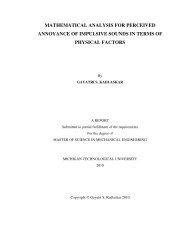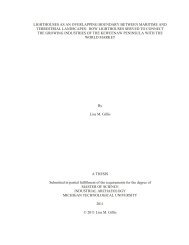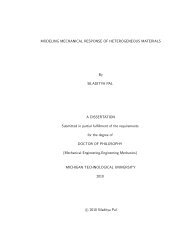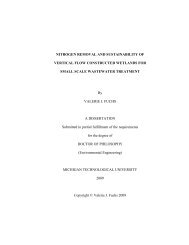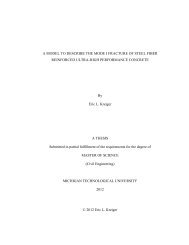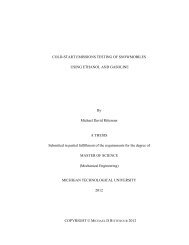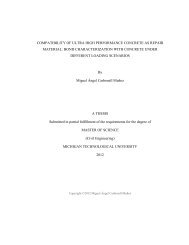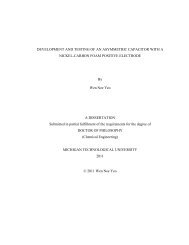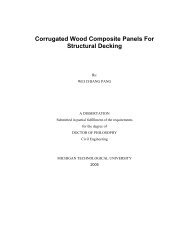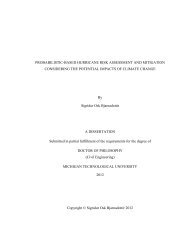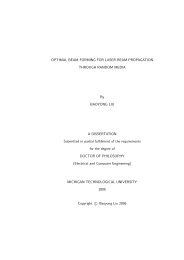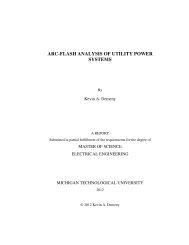C - Michigan Technological University
C - Michigan Technological University
C - Michigan Technological University
- No tags were found...
Create successful ePaper yourself
Turn your PDF publications into a flip-book with our unique Google optimized e-Paper software.
also unclear whether ucOCN may affect serotonin levels, or vice verse. In the currentstudy there were positive correlations of serotonin to adiponectin and glucose (Table2.8). These correlations are likewise puzzling. Serotonin 2A (5HT-2A) receptorantagonists increase serum adiponectin [189]. Suppression of 5HT-2A receptor geneexpression enhances adiponectin secretion in adipocytes [190]. These studies suggestan inverse relationship between serotonin and adiponectin. Another study suggests thatserotonin improves glucose uptake [191]. Therefore, the positive relationship ofserotonin to adiponectin and glucose does not coincide with current literature; however,serotonin may have a unique relationship to adiponectin and glucose during hibernation,and further study is needed to determine whether these positive relationships are due todirect interactions with serotonin.During hibernation in bears, carbohydrate metabolism apparently halts and thebears switch entirely to fat metabolism (for review see: [13]). The evidence for this claimis that lean body mass does not change during hibernation in bears [112, 192], and therespiratory quotient (RQ) drops to 0.60 during hibernation [112]. Fat combustionprovides the lowest theoretically possible RQ at 0.71. One review suggests thathibernating bears obtain the low RQ of 0.60 by switching entirely to fat metabolism andfixating CO 2 in the liver [13], which occurs in other hibernators [193]. In the current study,insulin and glucose levels were lower in the hibernating bear serum than in the activebear serum (Table 2.5). This decrease in insulin and glucose during hibernation may bedue to the switch to fat metabolism at this time. A similar drop in serum glucose hasbeen observed in hibernating black bears previously [112]. Both serum glucose andinsulin were positively correlated to adiponectin in the current study (Table 2.8).Although adiponectin generally reduces blood glucose by increasing insulin sensitivity[194, 195], the relationship between adiponectin and glucose homeostasis is complex.Patients with genetically defective insulin receptors have elevated plasma adiponectin[196], and patients with type I diabetes have elevated serum levels of high molecularweight adiponectin [197]. Since the patients of these two studies tend to behyperglycemic, it is clear that in some situations serum adiponectin may have a positiverelationship to serum glucose levels, as is observed in black bears during the monthsimmediately surrounding and encompassing hibernation.31



